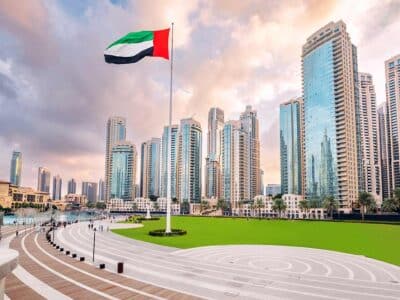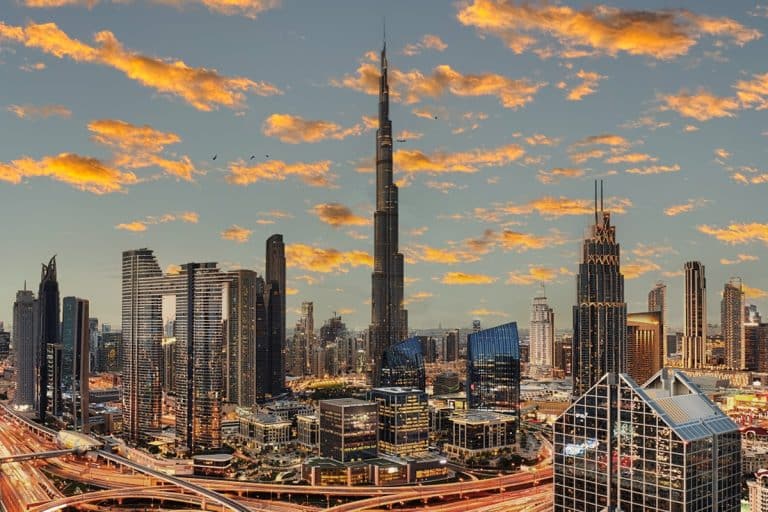Wealthy Indians are set to channel up to $20bn annually into UAE assets, particularly real estate, under new Reserve Bank of India rules.
The surge comes as Dubai’s property market records unprecedented growth, with 226,000 transactions valued at AED761bn ($207bn) in 2024.
Analysts highlight a widening funding gap, growing demand for private equity, and the rise of tokenisation as key forces shaping the next phase of UAE investment.
Wealthy Indian investors eye UAE real estate
According to Amit Goenka, Chairman and Managing Director of Nisus Finance, the Reserve Bank of India’s updated Overseas Portfolio Investment (OPI) and Overseas Direct Investment (ODI) guidelines under the Foreign Exchange Management Act (FEMA) provide greater clarity and flexibility for cross-border investments.
ODI by Indian entities falls under FEMA, which regulates all capital account transactions involving foreign exchange.
Under the Automatic Route, entities can now invest abroad without prior RBI approval if the investment is within 400 per cent of the entity’s net worth.
Ernst & Young reported that India’s outbound investments rose 67.74 per cent in FY2024-25, reaching $41.6bn compared to $24.8bn in FY2023-24.
Individual investors are also increasingly active under the Liberalised Remittance Scheme (LRS), which allows remittances of up to $250,000 per year. Outward remittances hit a record $29bn in April 2023–February 2024, up 21.7 per cent year-on-year.
Goenka said: “Indians are already the largest foreign investor group in the UAE economy, especially in the real estate sector, businesses and industries. We anticipate more Indians will invest in the UAE economy, due to the liberalisation in foreign investment rules”.
The UAE’s real estate market, valued at nearly $680bn in assets, continues to post record-breaking growth. In 2024, the market recorded 226,000 transactions worth AED761bn ($207bn), reflecting a 36 per cent year-on-year rise in volume and a 20 per cent increase in value.
Investment volumes surged 38 per cent to 217,000, valued at AED526bn ($143bn), while Dubai attracted 110,000 new investors, up 55 per cent.
Goenka noted that sustaining this growth requires more than $100bn annually in funding, but traditional capital sources currently provide only 30 per cent of the requirement.
He said: “So $100bn the current funding gap and the biggest challenge today, which is only widening with time. While the traditional capital sources can fill 30 per cent while the remaining 70 per cent remains untapped. This is where the opportunity lies”.
Nisus Finance, through its NiFCO fund, is targeting affordable housing in areas such as Jumeirah Village Circle (JVC) and Al Furjan, where 95 per cent of new growth is taking place.
The sector continues to draw demand but remains underdeveloped in terms of institutional financing. Goenka said non-banking finance companies and private credit players are beginning to enter the market, but cumulative investments still fall short of annual requirements.
In parallel, digital innovation is reshaping the investment landscape. Dubai Land Department’s real estate tokenisation pilot aims to drive AED60bn ($16.3bn) in tokenised property transactions by 2033.
According to Boston Consulting Group, tokenised assets could be worth $16tn globally by 2030, with real estate among the largest segments.
Nisus Finance is aligning its strategy with these shifts, deploying PropTech, AI, and blockchain in asset evaluation and fund management.
The UAE’s appeal extends beyond real estate. Geopolitical shifts are pushing manufacturing and logistics hubs toward the Gulf, with the UAE, Saudi Arabia, and Oman emerging as global centres for warehousing and light industry.
Authorities in Dubai, Abu Dhabi, and the Northern Emirates are offering incentives including single-window clearances and financing.
Population growth is also fuelling demand. The UAE’s Vision 2040 targets 13.6m residents, up from 10 million today.
In 2024, more than 4,300 Indian ultra-wealthy families relocated to the UAE, bringing $5bn in investable assets and driving demand for housing, schools, and services.
Institutional capital is responding. Global investors such as Blackstone and Brookfield are joining sovereign wealth funds and pension funds in backing UAE growth.
Goenka said: “We are witnessing a shift from legacy family capital to professionally managed global capital. This is a sign of market maturity, not a slowdown.”
Goenka forecasts that the UAE’s real estate investment trust (REIT) market, currently valued at $7–8bn, could mirror the growth seen in Singapore and the US within five to seven years.
Nisus Finance is targeting $1bn in investments through its own platform and partnerships.
“The opportunity is here, the capital is ready. It’s now about connecting the dots,” Goenka concluded.








